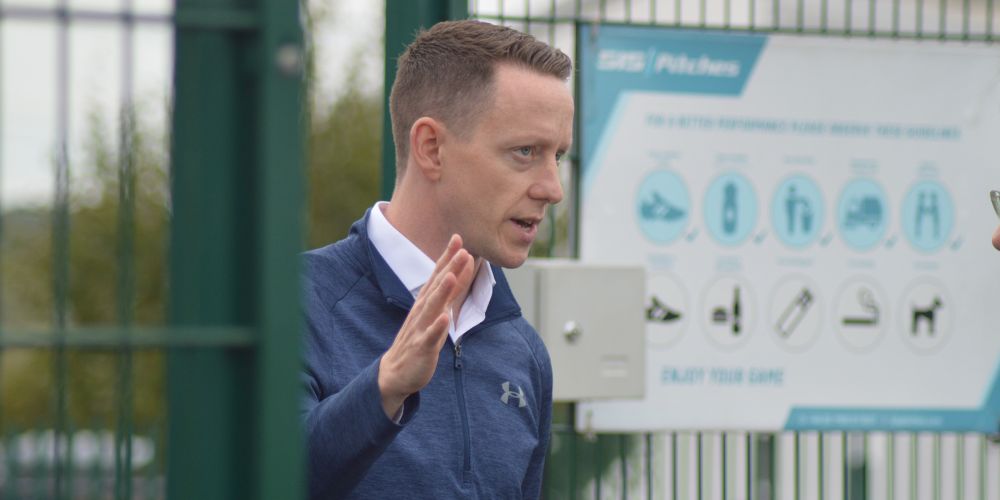The Chancellor of the Exchequer, Rachel Reeves, delivered the UK’s Autumn Budget on 30 October – her first budget and the first from a Labour government in 14 years. As the leader of an organisation operating in the sport for development and youth sectors, delivering activity, collaborating with impact partners, as well as employing a growing team – I was curious to understand the positives, opportunities and challenges this new budget will bring.
Employability
The plan to increase investment in local government, SEND provision, and housing are all welcome, and will support many communities in need. I’m also pleased that DWP are working collaboratively with the Youth Employment Group to ensure the ‘Young Person’s Guarantee’. Employment growth has stalled since the start of the pandemic (a trend not being experienced in other G7 countries), and economic inactivity has increased to 22.2%, so the reiteration of achieving an 80% employment rate is a welcome commitment and focus.
In terms of employment support, the decision to not extend the Work and Health Programme, and lack of clarity regarding the ‘People and Skills’ strand of the UKSPF extension risks individuals in some areas of the UK missing out on accessing the personalised employment support that we know works.
Of course, the devil is in the detail, and so we look forward to more details on many proposals in the ‘Get Britain Working’ whitepaper (due to be released later in the Autumn), but it is encouraging to see plans for a £240m Trailblazer Areas (trialling new ways of getting people back into work, including a focus on NEET cohorts), a new ‘Connect to Work’ £115m supported employment programme for 2025-2026 (supporting 100,000 people), £300m for the new Skills England (for further education to ensure “young people are developing the skills they need to succeed”), and (closer to home for us) West Midlands Combined Authorities receiving the first Integrated Settlements from 2025-26 (giving mayors meaningful local control over funding in a single flexible pot – and we know Richard Parker’s commitment is to young people and youth unemployment).
Youth Services and Sport
The Chancellor’s announcement of a real-term funding increase for local government (£1.3bn in new grant funding, and £600m ringfenced for social care) sadly omitted any mention of youth services. Until legislative change puts measures in place to support local authorities’ statutory duty to provide a suitable local youth offer, youth services will always be one of the first things to get cut as councils face tough decisions about their budgets.
Similarly with sport (and especially sport for development), the National Sector Partners Group (NSPG) stated that ‘the Chancellor has missed an opportunity to provide crucial detail about the significant role sport, recreation and physical activity can play in driving a healthier and more productive and prosperous nation’.
The Chancellor acknowledged that the government needs to review the benefits of investment, not just the cost implications. If it wishes to deliver on this preventative agenda, and “mark an end to short-termism”, it’s worth delving deeper into the societal benefit and return on investment of youth work and sport. UK Youth and Frontier Economics found that for every £1 invested in youth work, the benefit to the taxpayer is between £3.20-£6.40. And Sport England’s ‘Social value of sport and physical activity for England’ report powerfully illustrated the indispensable role the sector plays in improving the health and wellbeing of our nation, with an estimated annual social value of £107.2bn (inclusive of a wellbeing benefit of £8.6bn from children being involved in sport and physical activity).
Social Enterprise and Charities
More broadly, the decision to increase employer NICs will certainly place a strain on the sport for development sector (which proudly includes a number of charities and CICs) as well as the wider charity and social enterprise sector – NCVO’s estimated annual additional bill is £1.4bn, for a sector delivering over £17bn worth of public services per year. Many are calling for the government to remain committed to the sector’s role in working alongside them in delivering a decade of national renewal (as articulated in the Prime Minister’s speech launching the engagement on a Civil Society Covenant) by extending the NICs reimbursements offered to public sector organisation, to the third sector. You can sign this pledge from NCVO here.
Sport 4 Life UK
The government has an important fiscal responsibility and budgetary decisions are complex, nuanced and difficult, and many organisations will of course be biased in safeguarding the budgets that impact them the most. But we know – from our own research, as well as the increasingly growing body of evidence and insights in youth unemployment, youth development and the social impact of sport – that youth work and sport can achieve wide-ranging societal benefits, including life skills, mental health and wellbeing, crime, education, employment, and much more. And Sport 4 Life UK looks forward to continuing its delivery on the ground, as well as supporting our regional and national Impact Partners – in empowering young people to reach their potential by providing the skills, qualifications and support needed to find work and shape successful futures.
Tom Clarke-Forrest
Founder & CEO, Sport 4 Life UK


